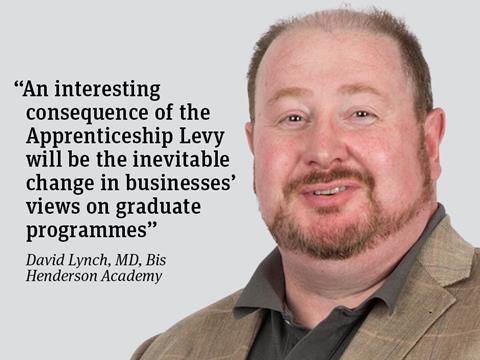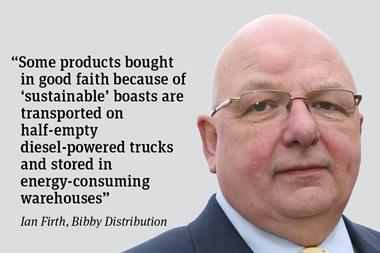
In April the government is to introduce a new ‘payroll tax’ in the form of an apprenticeship levy. Those businesses with an annual payroll bill in excess of £3m will see their payroll costs increase next year by 0.5% - a substantial extra cost burden for any company affected, across the public, private and not-for-profit sectors.
The good news is the incremental tax raised on the total payroll bill will be returned to the employer through an online account, along with an uplift of 10% from the government. But there is a catch. The employer can only spend the money on the delivery of apprenticeship-based training offered through an approved training provider. And if the funds are not used after 18 months the money is taken away.
If you take a company that employs 1,000 with an average salary cost of £30,000, then on that £30m payroll bill the business would pay a levy of £135,000 (after deducting a £15,000 allowance). With a 10% top up from the government the employer would have £148,000 available.
The problem comes in realising the full value from this ‘lost profit’. Funding for apprenticeships varies considerably, but if we took an average of £2,000 per qualification (which would be correct for some basic-level programmes) then that company with a headcount of 1,000 will need to have 74 apprentices next year, and every year thereafter, in order to fully utilise the funds. This is hardly going to be practicable as few companies, if any, are going to want to, effectively, turn their business into a sixth form college.
The way forward is for organisations to start thinking in terms of ‘funded development’. Businesses are going to need to consider where they can utilise apprenticeship-based training to complement their future needs and to replace some of their existing training budgets. The key will be in trying to reverse-engineer training goals into what can be delivered using these new funded frameworks. And this may be across a raft of levels. It could be at the basic NVQ Level 2 or right the way up to a degree apprenticeship at level six or seven.
Importantly, it takes time to put frameworks in place, to identify the individuals and to assess each individual’s funding potential, because there are strict funding criteria - not everybody will be fundable. For instance, a candidate apprentice has to be resident in the UK for a minimum of three years to qualify.
An interesting consequence of the levy will be the inevitable change in businesses’ views on graduate programmes. The complex rules of the scheme only allow funding for vocational courses. Could we start to see fewer jobs available to graduates with non-vocational degrees and more businesses deciding to use their levied funds to engage young people in vocational apprenticeship degree courses?
Unlike taxes on profits, this ‘tax on costs’ coming down the pipeline in April is something that can’t be massaged by accountants. The only choice for management will be, do you take the hit or do you try and make it work for you?
David Lynch is MD of Bis Henderson Academy



















No comments yet